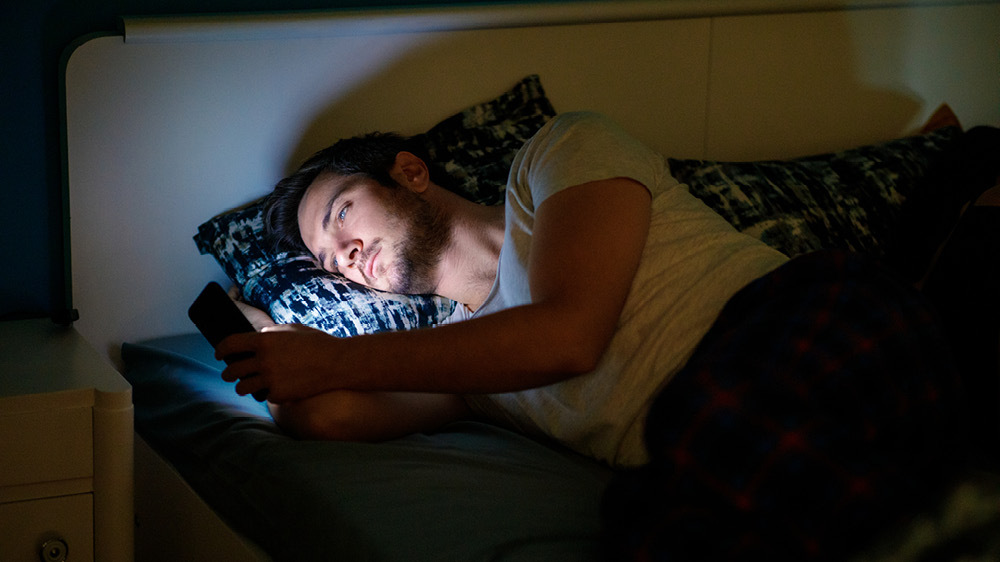10 tips for insomnia to get a better night’s rest
February 15, 2024Categories: Sleep Medicine, Wellness
Sleep is an integral part of life, but it’s not always easy. Ninety-five percent of all Americans experience sleep problems. Many have insomnia, the inability to fall asleep or awakening during sleep.
Insomnia is one of the most common symptoms for which adults seek medical advice. Although sleep is a strong and highly regulated biologic drive, the ability to fall asleep at the desired time and maintain sleep without excessive waking is fragile and influenced by multiple factors. Identifying these factors is at the core of insomnia treatment.
If you think you may have insomnia or another sleep disorder, here are 10 helpful tips to follow:
#1: Don't oversleep.
Sleep as much as you need to feel refreshed and healthy, but no more. You can't "catch up" on lost sleep.
#2: Don't nap.
If you've been having trouble going to sleep at your normal time, don't let yourself take naps – especially within a few hours of your regular bedtime. Naps “erase” the sleep drive. An occasional nap can be acceptable but avoid routine napping.
#3: Exercise.
Regular exercise can be an effective aid for sleeping. Three to four weeks of regular physical exercise is required before you'll notice the positive benefits. Try to exercise in the late afternoon and avoid strenuous activity at least three hours before bedtime.
Your core body temperature is critical to your ability to fall asleep. The “cooler” you are, the easier it is to fall asleep.
#4: Have a snack.
Hunger may disturb sleep; however, a light snack (less than 400 calories) may help you sleep. Milk, eggs, tuna, cottage cheese, soybeans, cashews, chicken and turkey make good bedtime snacks. These foods have a high concentration of L-tryptophan, which your body turns into serotonin to help you sleep. (Your last heavy meal should be at least two to four hours before sleep.) Be mindful that binge eating at night does NOT promote healthy sleep.
#5: Skip caffeine.
Caffeine in the evening disturbs sleep. All coffee (even decaffeinated), most teas, chocolates and drinks that contain caffeine can significantly disrupt your sleep. People can metabolize caffeine differently so realize even small amounts of caffeine can impact certain individuals.
#6: Slow down.
As the evening unfolds, try to unwind. If you have challenging, exacting work to complete, get it out of the way, and then take time to quiet your mind before you try to sleep. Please avoid stimulating activities. Like an airplane trying to land, slow down and lower your altitude!
#7: Set your clock.
Go to bed only when you are tired, but get up at the same time every day. Within a few weeks, your consistent morning awakenings will lead to a consistent bedtime. It’s easier to fall asleep earlier if you GET UP earlier. Sleeping in leads to later bedtimes and a cycle of insomnia.
#8: Move your location.
If you've been lying in bed for 20 minutes and you're still not asleep, don't stay there in frustration. Get out of bed and do something that is relaxing or boring. Don't watch the clock. When you're too sleepy to stay awake any longer, return to bed.
#9: Breathe deeply.
Deep breathing can bring on drowsiness. Take a series of three slow, deep breaths, exhaling fully after each one. Repeat until you are relaxed and asleep. If you have a chance, explore “box breathing” techniques.
#10: Consider sleeping pills.
An occasional sleeping pill may be beneficial, but regular use is ineffective for people with insomnia. Chronic usage of sleeping pills is not an appropriate long-term strategy. It’s also worth mentioning that alcohol is not an appropriate plan to help with sleep onset.
If you still can’t fall or stay asleep but constantly feel sleepy during the daytime, contact your primary care provider to discuss the option of consulting a MercyOne sleep expert. Our providers will work with you to determine the cause of your sleepless nights and get you on your way to more restful nights.


